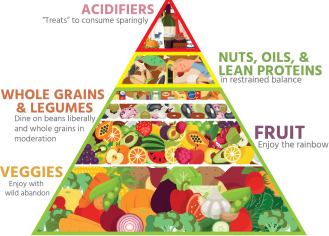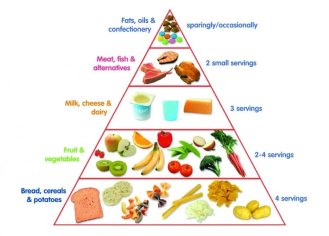What is Low-FODMAP Diet?
The low-FODMAP diet is a diet designed to help manage gastrointestinal symptoms, particularly those associated with irritable bowel syndrome (IBS) and other digestive disorders. FODMAPs are a group of fermentable carbohydrates that are poorly absorbed in the small intestine and can cause digestive issues in some individuals.
FODMAP is an acronym that stands for:
Fermentable: The carbohydrates can be fermented by gut bacteria.
Oligosaccharides: These include fructans and galacto-oligosaccharides (GOS), found in certain grains, vegetables, and legumes.
Disaccharides: Primarily lactose, found in dairy products.
Monosaccharides: Mainly excess fructose, found in some fruits.
Polyols: Such as sorbitol, mannitol, xylitol, and maltitol, found in certain fruits and artificial sweeteners.
The low-FODMAP diet involves restricting the consumption of foods high in FODMAPs for a specific period, typically around 2-6 weeks. This initial phase helps to alleviate symptoms in sensitive individuals. After this elimination phase, foods are gradually reintroduced to identify specific triggers and create a more personalized long-term diet plan.
Avoid:
- Wheat and rye products
- Fruits: apples, pears, cherries, and watermelon
- Certain vegetables: onions, garlic, broccoli, and cauliflower
- Legumes: beans, lentils, and chickpeas
- Dairy products containing lactose: milk, yogurt, and soft cheeses
- Sweeteners: honey, high-fructose corn syrup, and certain artificial sweeteners
During the reintroduction phase, individual tolerance to specific FODMAP groups is tested, and small portions of one FODMAP group are reintroduced at a time. Based on the reaction to each group, a personalized long-term diet plan is created, allowing the inclusion of foods that do not trigger symptoms.
Complementary and alternative medical approaches for irritable bowel syndrome (IBS):
Acupuncture: Studies on acupuncture's effectiveness for IBS have yielded mixed results. One trial showed improvement in participants receiving the treatment, while another found no significant difference between real and simulated acupuncture.
Hypnotherapy (hypnosis): There is some evidence supporting gut-directed hypnotherapy (GDH) as a treatment for IBS. It may improve IBS symptoms, anxiety, depression, disability, and quality of life, but further research is needed.
Mindfulness: Focused-based meditation, such as mindfulness, may potentially help people with IBS, but the evidence is insufficient to draw definite conclusions.
Yoga: A small study indicated that yoga could improve abdominal pain, constipation, and nausea in individuals with IBS, with effects lasting for at least two months.
Dietary supplements: Some supplements, like Chinese herbs, slippery elm, aloe vera juice, and probiotics, have been investigated for IBS, but more thorough studies are required to determine their effectiveness. Peppermint oil, however, has shown promising results in alleviating IBS symptoms based on fairly good data.
Recipes
- Low FODMAP breakfast stuffed potatoes
- Curried kale salad
- Veggie packed low-FODMAP soup
- Mixed salad with turmeric vinaigrette
- Low-FODMAP maple mustard chicken
- Meatballs with fresh basil and Parmesan
- Roasted carrot soup
- No-mayo potato salad with herbed bacon and eggs
- Roasted aubergine with chili peanut dressing
- Salmon & spinach with tartare cream
For Images:
Was this article helpful?
Similar Articles


